5 Advantages of Studying Abroad as a Woman of Color
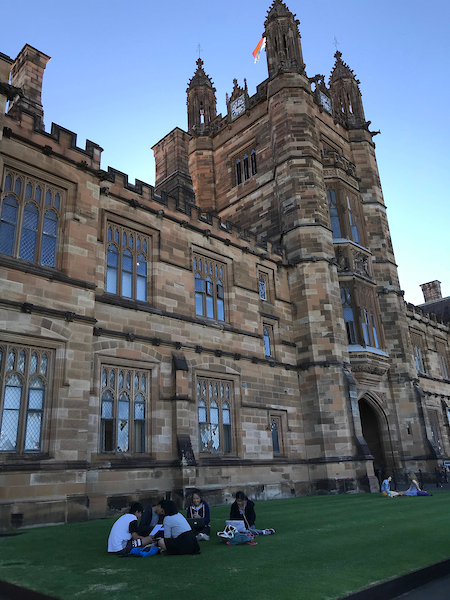

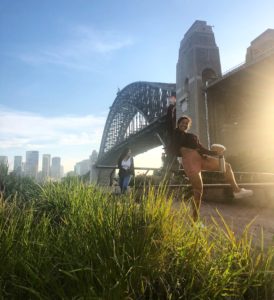
Before I went to Australia, I assumed that being a woman of color in a predominantly white country would be difficult and that my identity might negatively impact my study abroad experience. However, something I never thought about was how my identity would positively impact my time abroad in terms of the conversations I would have and the self-reflection it would allow. I hope that other students and women of color choose to study abroad to see their identity not as a hindrance but as an advantage. Here are some of my experiences as a woman of color in Australia.
Being a W.O.C. in the Classroom
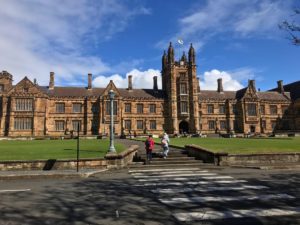
As a woman of color from the United States, my identity gave me a unique perspective in my Australian Social Science classes. At the University of Sydney, something that shocked me was how the intersection of three of my identities — a woman, a person of color, and a citizen of the United States — influenced my point of view in classroom discussion. Australians are very engaged in American politics, so I found that all of my classmates were genuinely interested to have a first-person account of what it was like to be a woman of color in the United States, and it was new to me to have people really want to understand my experience. In my social science classes at home, it felt a lot like people would endure others sharing their own experiences so they could then share their own. In my Australian classes, it felt like people truly wanted to listen, and it felt good to be heard.
Being a W.O.C. in Sydney
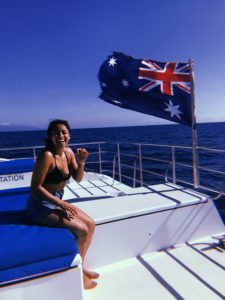
My experience as a woman of color in Sydney was both different and similar to my experience in the United States. One way that it was different was that there was no universal person of color head nod as you passed by strangers, unless they also happened to be from the states. I got the sense that there was less of a necessity for a community of people of color.
One way that my experience in Sydney was similar to that in the United States, however, was in terms of my hair. Even though there were no head nods or knowing smiles with strangers, other women of color with curly hair would come up to me at the beach, at bars, wherever it was appropriate, and comment on my hair. I wear my hair naturally (curly), and so these women would usually compliment me on my hair and then ask what products I used or recommend some based on their own experiences with their hair. It was comforting to have this common experience across cultures. Overall though, I would say that my experience in Sydney wasn’t as controlled by my identity as a woman of color as it is in the U.S., and it was interesting for me to gain this new perspective.
Sharing Your Experience
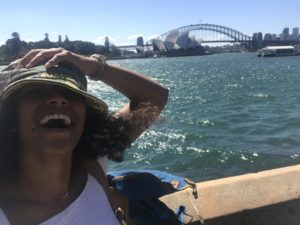
In a self-absorbed way, one of the best parts about studying abroad as a woman of color was the fact that people truly wanted to know about my experiences as an American woman of color. From my classmates, to my Uber drivers, the people I met wanted to know more about my experience.
As a biracial woman of color, I had never really thought of my experience as interesting or really worth sharing since I walk a kind of middle line in the U.S., but it felt good to feel like I had an experience worth sharing. Of course I could not and did not speak for all women of color or all biracial women, but I felt as if my experience was one that people didn’t get a firsthand account of too often in Australia and that made them even more eager to hear about it. Other students of color should decide to study abroad because of this valuable opportunity to view your own experiences differently through someone else’s eyes.
Reevaluating Your Past Experiences in a New Place
Since I was thinking about my experiences from an entirely new perspective, I got to think about and unpack them in an entirely different way. Instead of thinking about my experiences in terms of the white and black binary that is pervasive in American society, I was able to reflect on them as their own distinguishable thing. This gave me the chance to think about my relationships at home, my relationships with place in my communities, and also the varying ways that people from different countries may view my identity. It was a whole new side of the social sciences that I hadn’t thought of, and would not have thought about had the people that I met abroad not asked me to.
Looking at Your Intersecting Identities from a New Perspective
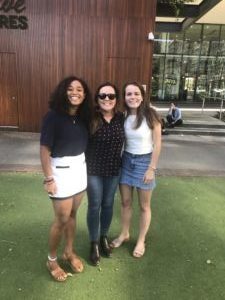
While my experience will differ from most other students and other students of color, one final aspect of studying abroad as a woman of color was the chance to not always be focused on these two identities. Perhaps when people first saw me, they saw me as a woman, or maybe even as a woman of color. As soon as I started talking to people, however, my primary identity became American (due to my accent).
Going abroad I knew that I would be learning all about a new culture, but I forgot about the cultural exchange part of that process. So as I was learning about the Australians I was meeting, they were learning about my experience as an American citizen. It was refreshing for me to not always be a person of color first and foremost to people when I first met them, as I have experienced in the U.S., and this change of pace was a refreshing look at how my intersecting identities have different significance based on my location.
My study abroad experience was positively impacted by my identity as a biracial woman of color. Both in and out of the classroom, my identity provided me with a unique vantage point and a unique set of experiences that I was able to share with people who wanted to listen. This opportunity to share my experiences also allowed me to reflect on them in a different way that provided me new insights.
In addition, during my time studying abroad I was able to feel my identities intersect in different ways depending on the context I was in, and it was refreshing to sometimes be seen as an American rather than a person of color. Studying abroad as a woman of color helped me to better understand my intersecting identities and experiences, and I hope that other students and women of color will have this opportunity as well.
Taylor J. | Political Science major | Colgate University | University of Sydney Partnership in Australia | Fall 2018